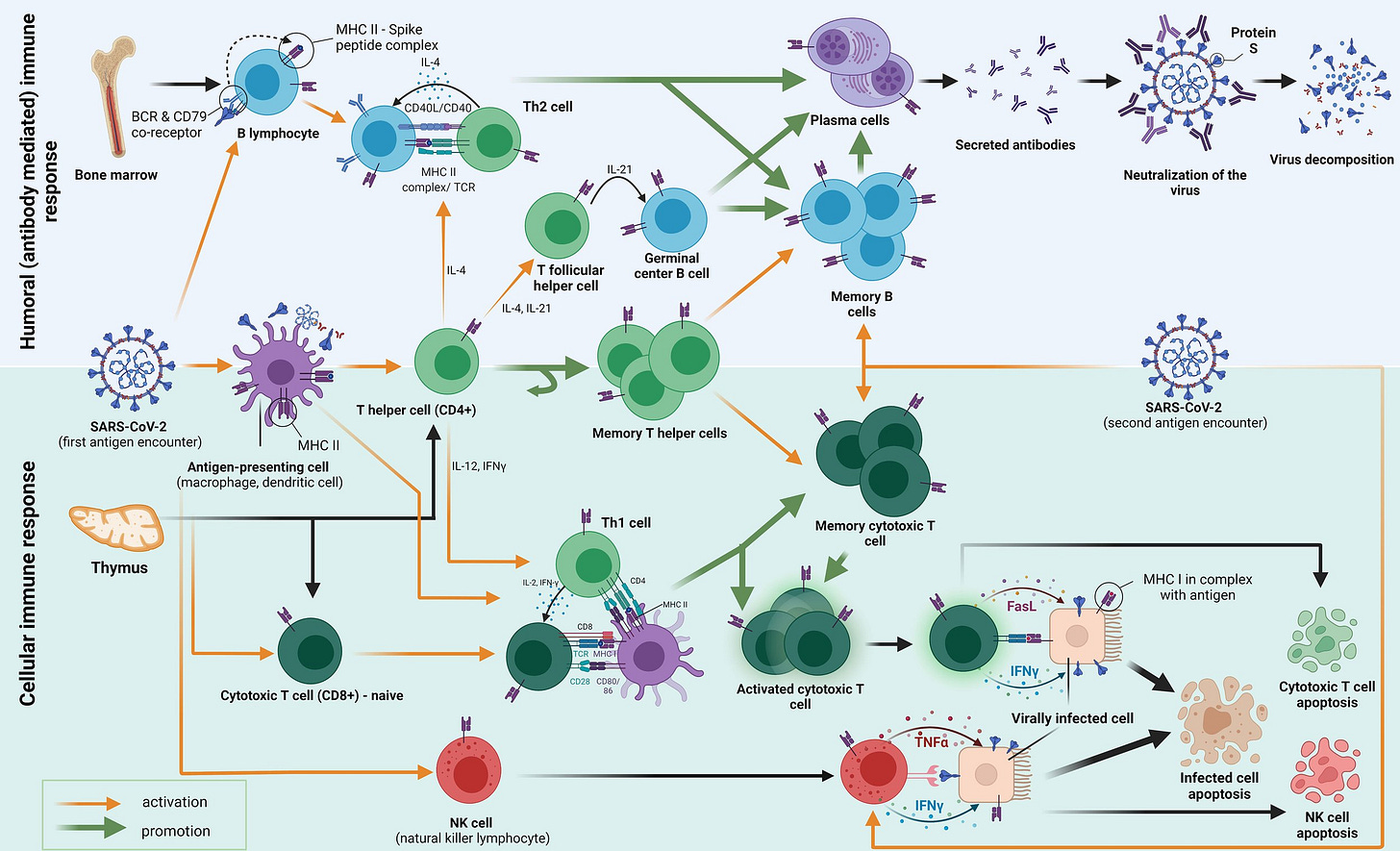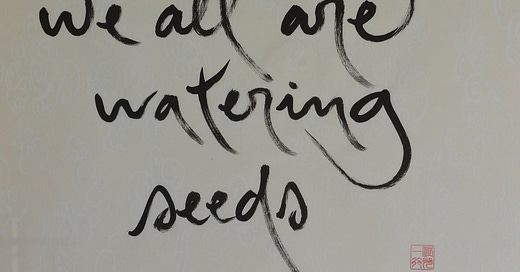Readings
(click the header to view the readings)
Isaiah 10:5-19
2 Peter 2:17-22
Matthew 11:2-15
Reflection
Over the past week, we’ve explored joy, our minds, and how we can cultivate joy in our minds. Today I want to look at how we share joy, starting with why we cultivate it.
In Mahayana Buddhism (which includes all forms of Zen as well as the various Tibetan schools), the bodhisattva is the spiritual ideal. Bodhisattvas are people who have aroused bodhicitta (the desire in the mind to awaken) and are on the path to Buddhahood. Their desire to awaken is not for their own benefit, but so that they can be of benefit to all beings. This aspiration also informs why we seek to cultivate joy. It isn’t simply for our own enjoyment, but so that we can become sources of peace, love, and joy in the world.
A Scientific Prelude
My doctoral work was in an area known as complex adaptive systems. I focused on systems consisting of many (millions or more) entities, each behaving independently, but communicating with some of the other entities in the system in ways that could influence their behavior. My specific focus was on the immune system, where the trillions of cells in the immune system act independently, but are influenced by information from other cells transmitted through messenger molecules called cytokines, giving rise to an immunological response (see Fig. 1.) Another examples of a complex adaptive system is people making personal decisions about money, but being influenced by “signals” they get from their neighbors and the behavior of the economy, which is influenced by the decisions they make.

Studying these systems is fascinating, because often a sophisticated set of global behaviors emerges that isn’t under the control of any “supervisor.” Very orderly and complex patterns arise solely based on the actions of the communicating individuals. Examples of this are a robust immune response to an infection, a growing economy, and the behavior of insect colonies constructing sophisticated structures with no architect in charge.
What do these complex adaptive systems have to do with our Advent practice and desire to share joy? Almost everything.
Connected and Communicating
Society is a complex adaptive system. We are individuals in this very large social system, we communicate with each other, and our current culture arises as a result of our own actions, our communications, and the actions of all of the other actors in the system. We cannot control the culture, but we most definitely influence it.
All of the other people in this system have a mind and consciousness that operate according to the same principles as our own. We have explored the importance of ingesting healthy nutriments and avoiding toxic nutriments. One of the biggest and most challenging sources of nutriments to manage is what we ingest as we communicate with other people.
We’ve all had the experience of being with someone and leaving the interaction feeling uplifted and in good spirits. We’ve also all had the opposite experience of spending time with someone and leaving feeling depleted, agitated, or blue. In both cases, it may be a result of the nutriments that we ingested after they were shared by the other person. The way we talk and listen to each other has a profound effect on what we transmit, and collectively, on the culture that arises. We need to communicate clearly and carefully, with words that are true and inspire joy and hope. To help us do this, I want to offer two practices.
Right Speech Practice
When we are speaking to another person, we need to train ourselves to speak in ways that water beneficial seeds in the person to whom we are speaking. The mindfulness training (precept) on loving speech and deep listening says:
I will speak and listen in a way that can help myself and the other person to transform suffering and see the way out of difficult situations. I am determined not to spread news that I do not know to be certain and not to utter words that can cause division or discord.1
This is hard for most of us, as we get carried away while speaking and often say things that we later regret. If we practice mindfulness while speaking, we can learn to be more skillful about how we communication. I like these four guidelines to help determine if something I am about to share is skillful. The item must get a “yes” on all four questions in order to be suitable for sharing.
Is what I am about to share true?
Is it useful for the person with whom I’m about to share it?
It now the time to share this?
Am I the person to share this?
When people develop deeper mindfulness of speech, they speak more sparingly, they have a clarity that makes it easy for others to understand what is being communicated, and they transmit compassion and love that waters good seeds within their partners in conversation.
Deep Listening Practice
Speaking is only half of communicating skillfully. Listening is the other half of the skill, and is every bit as important for watering healthy seeds as mindful speaking. We need to listen mindfully and deeply for two reasons:
To truly understand what the other person is trying to communicate
To protect ourselves if what is communicated is challenging or has the potential to water seeds of suffering within us
The goal of truly understanding the other person is important, because only when we actually understand them will we be able to communicate skillfully and effectively. Listening to understand is an important practice that requires the emotional regulation to put aside urges to agree, disagree, or correct the other person. Those reactions can come later, but as we are listening, we need to set them aside and use any interaction for the purpose of understanding the person. If we can do this, they will feel that we have heard and taken what they said to heart, and that alone can touch many beneficial seeds.
Suppose someone misunderstood an action I took and is very upset by it. If I interrupt continually to correct or defend myself as they express their upset, the situation may unnecessarily escalate and become more full of tension. If I can listen to the person and let them know that I understand their perspective before seeking to share my explanation of what happened, a simpler and less tense resolution may be possible. Listening to understand is very important. It is uncommon in our current society, so it takes time and practice to build this skill.
The second function of mindful listening is to protect ourselves should the other person begin to speak in a way that waters toxic seeds within us. These situations are frequent in today’s rapid response culture. Protecting ourselves using mindful listening requires the skill of being able to see how we are experiencing what is being shared. In cases where what is being shared is touching negative seeds but we feel we need to persist in the communication, mindfulness of breathing as we listen may be calming to the negative formations arising in our mind. In other cases, we may realize that both of us would benefit if we took a break and came back to the topic later. Proposing this calmly and kindly is skillful speech. In extreme cases, we may realize that we need to cease the conversation. We may also realized that we need to limit contact with the person who is causing us this type of distress. This is a sad realization, but may be best for both parties.
The Web of Joy
Suppose we are able to practice loving speech and deep listening. The people we encounter in our daily lives will be affected by being heard and having their beneficial seeds watered. Imagine that some of those folks feel a bit more grounded in peace and compassion, and they too begin to speak and listen with more love. We have so many interactions each day, and each person we interact with has so many, and on and on. We live on a deeply connected web of belonging, and doing our part to transmit peace and joy onto the connected network of society can have profound effects. In his wonderful little book How to Fight, Thich Nhat Hanh says, “When we have hatred and anger in ourselves, they rebound to all quarters. When we have peace and joy in ourselves, our peace and joy will radiate throughout the whole cosmos.”
Prayer
Ground of word and silence, plant joy and the desire to share it within my heart, write peace and love into the words I speak, and harvest insight and understanding from the words I hear. Amen.
This is from the fourth of the Five Mindfulness Trainings, Thich Nhat Hanh’s version of the Buddhist precepts that are recited monthly by practitioners.





Great article. I truly believe that the energy we bring to a conversation not only has the potential to transform the conversation but also everyone involved.
What translation of the Bible do you use? I like it